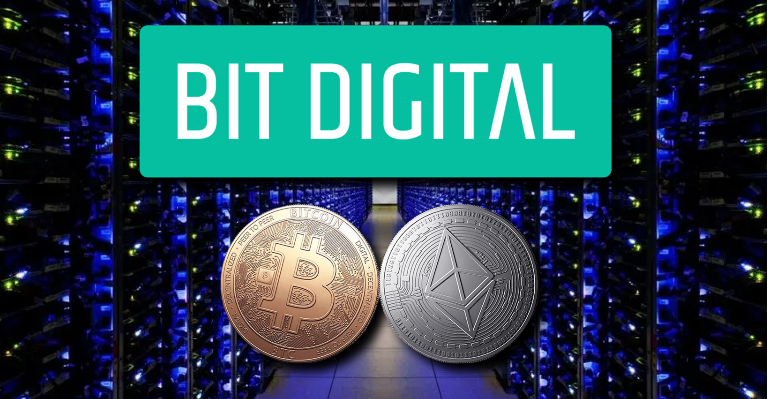TL;DR
- Bit Digital has officially exited Bitcoin mining to pursue a full-scale Ethereum-focused strategy.
- The company plans to sell its BTC holdings and redirect those funds into ETH while issuing corporate debt to expand its Ethereum treasury.
- This shift reflects a growing trend among crypto firms seeking sustainable returns through staking, thereby avoiding the high costs of intensive mining and its declining profitability.
“Bit Digital”, a Nasdaq-listed digital asset firm, has confirmed it is winding down all Bitcoin mining operations and transitioning to an Ethereum-first model centered on staking and treasury management. The firm, once active across the US, Canada, and Iceland, is fully pivoting to ETH after years of growing its Ethereum infrastructure and on-chain expertise.
The company’s updated strategy includes selling its current Bitcoin reserves—417.6 BTC valued at roughly $34.5 million—and converting that capital into ETH. As of March 31, Bit Digital already held 24,434.2 ETH, worth approximately $44.6 million. In addition, it announced plans to issue corporate debt in order to purchase more ether, aligning itself with a growing trend among crypto-native companies.
Ethereum Staking Seen As Financially Smarter
According to company statements, Ethereum staking offers more attractive unit economics compared to traditional proof-of-work mining. Without the constant need for high-cost equipment, energy bills, and reinvestment in depreciating hardware, Bit Digital sees greater sustainability in proof-of-stake protocols.
This shift isn’t isolated. Other firms like BTCS Inc. and SharpLink have adopted similar models, issuing debt to acquire ETH rather than relying on mining revenue. While these strategies echo Michael Saylor’s playbook, they diverge in asset choice: Saylor continues to back Bitcoin, whereas these newer players are betting on Ethereum’s long-term scalability and utility.
Increased Bitcoin mining costs may be driving this divergence. According to recent data, the average cost of mining one BTC rose to $64,000 in Q1 2025, and could exceed $70,000 by Q2. Meanwhile, low transaction fees and escalating hashrates further compress miner margins across the board.

New Model Offers Yield Without Operational Burn
Charles Allen, CEO of BTCS, emphasized that mining often forces companies to sell their Bitcoin to cover expenses, reducing long-term exposure. In contrast, Ethereum staking offers both asset appreciation and recurring rewards, without the operational drag or capital depletion.
Although Bit Digital’s stock fell 3.69% following the announcement, the move suggests a long-term realignment that favors efficiency, sustainability, and revenue stability. For firms reevaluating how to extract value from crypto assets, Bit Digital may now serve as a model for the Ethereum era.

